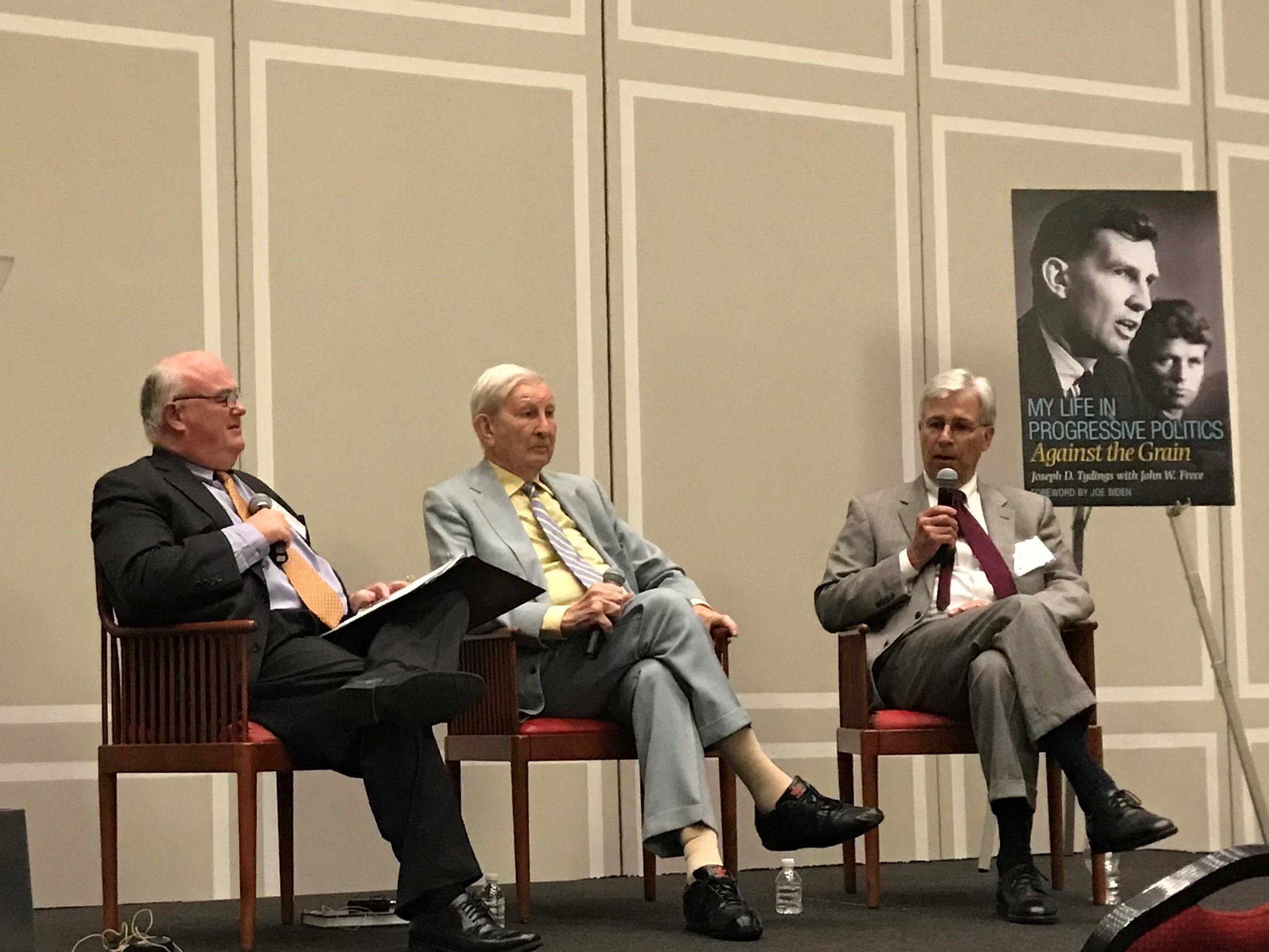Joseph Davies Tydings, a former Maryland senator and chairman of the University of Maryland’s Board of Regents, died of cancer Monday afternoon. He was 90.
Tydings is the adopted son of former Sen. Millard Tydings, after which this university’s Tydings Hall is named. He graduated from this university in 1950 and the University of Maryland Law School in 1953.
From 1974 to 1984, Tydings was a member of this university’s Board of Regents, which existed prior to the University System of Maryland’s Board of Regents. He was elected to vice chair of the board in 1979 and chair in 1982.
[Read more: Bernie Sanders encourages UMD students to “revitalize American democracy”]
Past and present Maryland officials spoke out Monday about the former senator’s death. Gov. Larry Hogan tweeted that he and first lady Yumi Hogan were saddened.
“In his many years serving Marylanders, Senator Tydings made an undeniable impact on our state’s history and future. Please join us in praying for his family,” he wrote.
Doug Gansler, Maryland’s former attorney general, said in a tweet that Maryland “lost a great public servant,” and he “lost [his] mentor and friend.”
[Read more: Comedian Dave Chappelle stumps with Ben Jealous at UMD]
Tydings served on the U.S Senate for six years, running under the slogan “Working for Maryland, not the machine,” according to The Baltimore Sun. He was one of the sponsors for the 1965 Voting Rights Act, which made discriminatory voting practices illegal and he introduced the Firearms Registration and Licensing Act, which would have mandated firearm registration and created a license requirement.
In 1970, Tydings failed to win a second term in the Senate after speaking out about gun control. The National Rifle Association campaigned against him with the slogan “If Tydings wins, you lose,” The Sun reported.
In April, this university hosted a 90th birthday celebration for Tydings, where the former senator promoted “My Life in Progressive Politics: Against the Grain,” a memoir he co-authored with former journalist John Frece. The book outlined Tydings’ career and his fight for progressive issues such as gun control, civil rights and health care.
“Anyone who knows me, knows I’m a University of Maryland man!” Tydings said at the event.
Tydings, who began his career in government in 1954 when he was elected to the Maryland House of Delegates for Harford County, had also noted the importance of young people engaging in politics at the event, saying it “means everything.”
“I admired his fearlessness,” Frece said in April.



